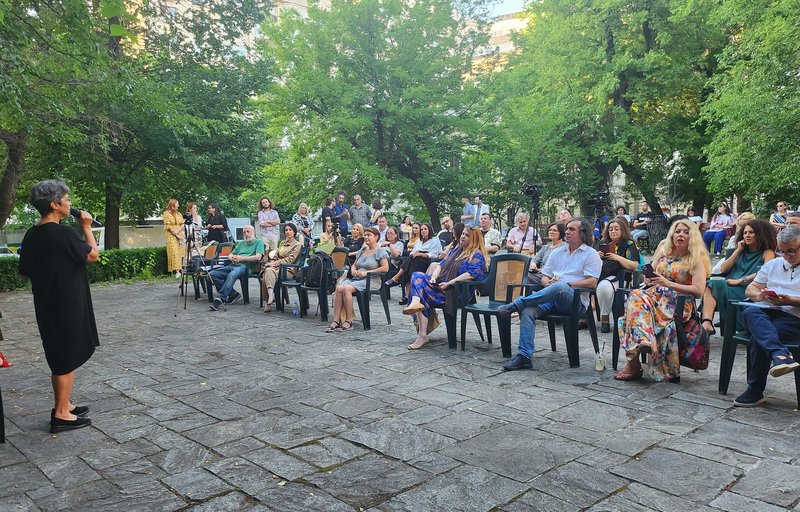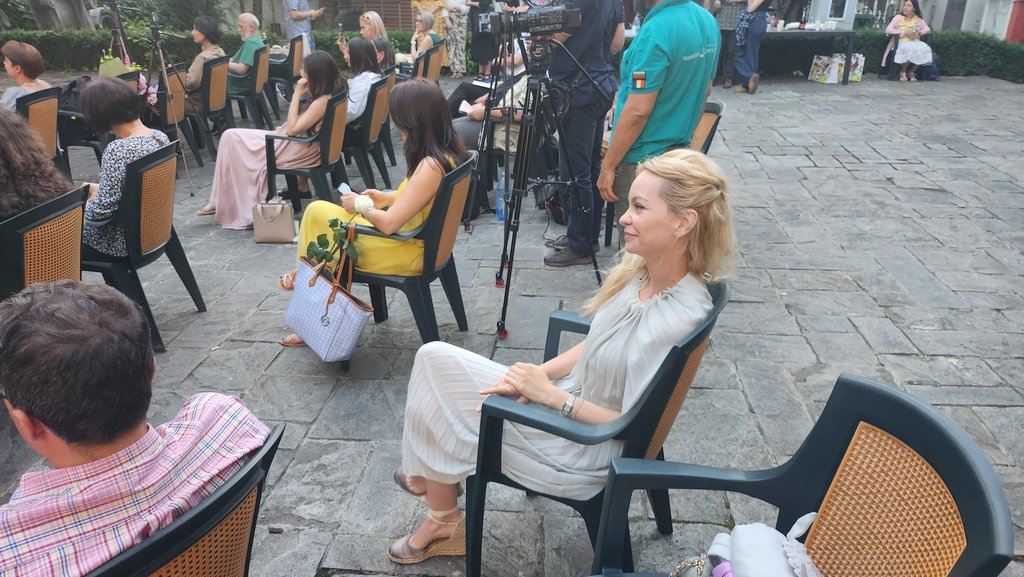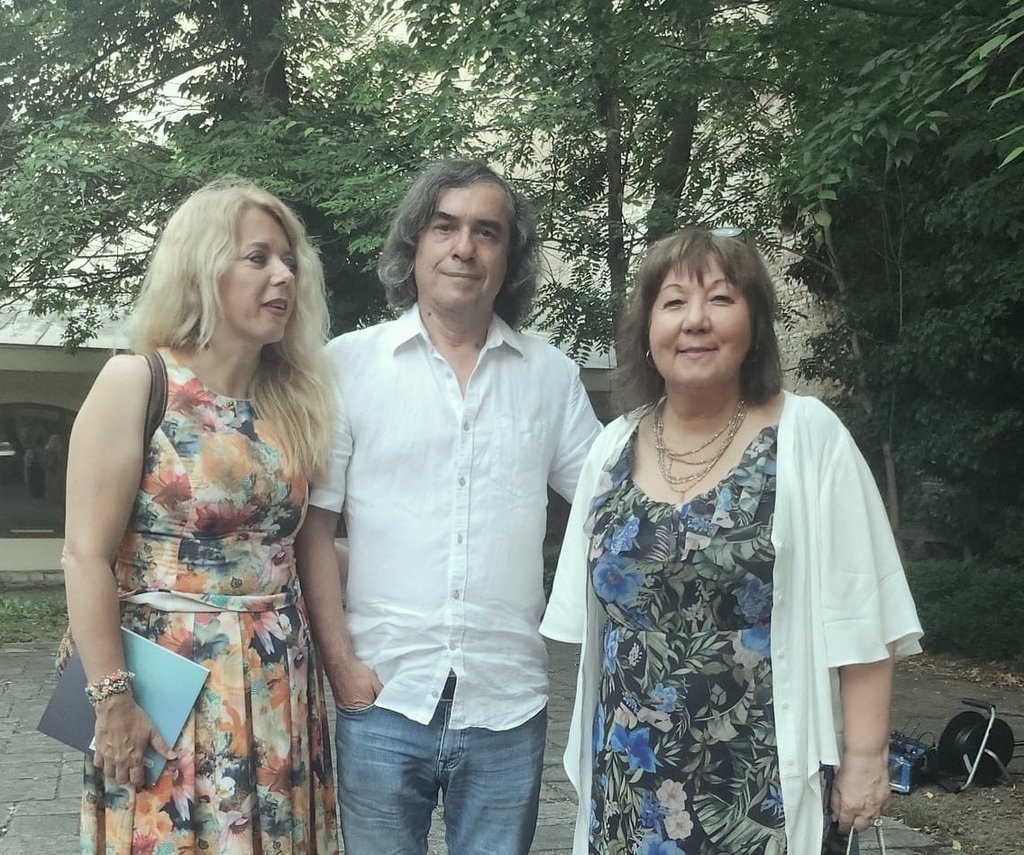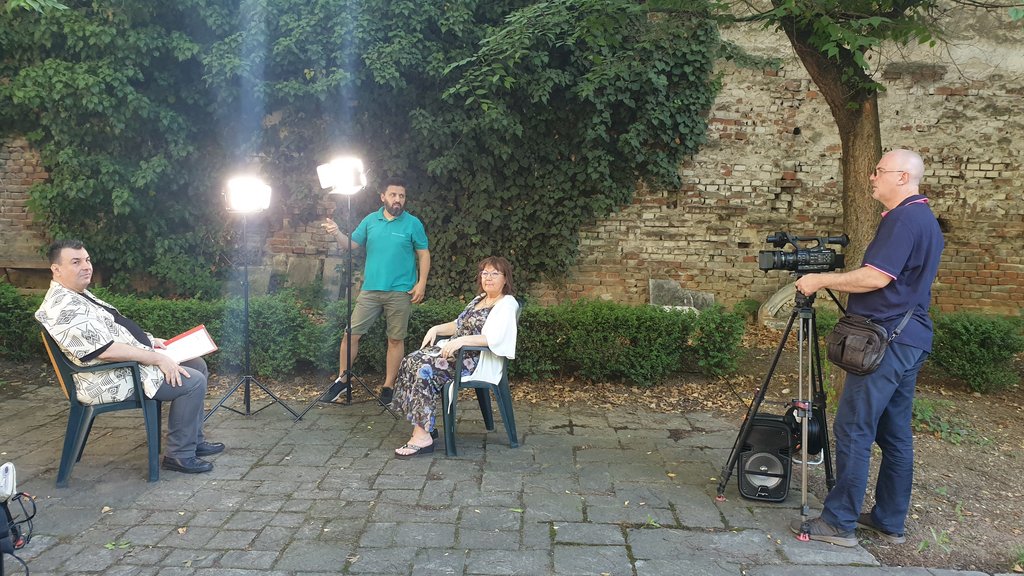
A few days ago, the Association of Fiction Creators, which also publishes Ficțiunea magazine, awarded several prizes—an occasion for a gathering in the garden of the Filipescu Cesianu House on Calea Victoriei.
Founded and led by Doina Ruști, the Association brings together around 400 people—established artists from all artistic fields, as well as individuals involved, in one way or another, in the idea of fiction: photographers, providers of artistic content, fictionalizers of everyday life, exegetes, supporters, or consumers of fiction, all aware that they are taking part in a hybrid artistic construct. In short: creators of fiction.
This term is not accidental. Fiction is not always creation. In essence, it is a subjective simulation of reality, a fabrication. Fictura (in Latin) refers to a “deceptive” figure—a symbolic and personal representation of the world. A synthesis.
We are currently witnessing a creative explosion. On a mass scale—exactly as Nietzsche foresaw—humanity participates in a hyperconstruct assembled on social networks from images, text, music, and film. People who have never read literature in their lives meticulously build the astonishing story of socks turned, with a single cut of scissors, into talking gloves. The action is filmed, posted online, commented on. Others make new videos to comment on that video. This is only a tiny fragment of our daily life, which has reached all the arts and now discreetly guides even the avant-garde.
For decades now, the arts have entered into a mélange that makes any return to classical structures and means impossible. “Things are happening,” said Mircea Cărtărescu when receiving the award for Best Character. It is comfortable to step outside the artistic bubble, noted Eugen Jebeleanu, the young director from the National Theatre in Bucharest. The arts do not exclude one another—this has long been known—but today we are speaking primarily about participation. In the “meta-verse,” to paraphrase the title of a book by Dan Mircea Cipariu, hybrid art begins.
This is precisely why we gathered, toward evening, in a garden—a traditional and typically Bucharest setting—to celebrate visionary artists. This is why Jebeleanu’s The Seagull was awarded: an experience of rereading a classical work, an artistic manifesto. For the same reason, we needed a character like Theodoros—both classical and contemporary, symbolic and memorable. Verses from Levantul floated above the garden, and the gathering coalesced around the hallucinatory Horodok by Adi G. Secară. Because we need aesthetic change.
The Association of Fiction Creators used the awards as a pretext to present, in fact, seventeen exceptional artists. We appreciated the irony at the end of Negoescu’s film, Ceaușoglu’s craftsmanship, the denouement in Dora Pavel’s work, and the novelty of Alexandru Lamba’s novel Seven Vain Virtues and One Sinful Death.
As expected, the categories were not organized by genres or species, nor by popularity or personal favors.

These are the awards:
Refined and ingenious artistic style: Adi G. Secară – Horodok (poetry), Eikon, 2022
Hybrid creation – manifesto value: Eugen Jebeleanu – The Seagull (after Chekhov), National Theatre Bucharest
Psychological fiction with social impact: Alina Grigore – Blue Moon (Crai nou), film
Best character: Mircea Cărtărescu – Theodoros, from the novel of the same name (Humanitas, 2022)
Best ending: Alexandru Lamba – Seven Vain Virtues and One Sinful Death (Litera, 2022)
Popular fiction: Dana Ștefănescu – urban photography
Special Ficțiunea Award: Dan Mircea Cipariu – Meta-Vers (Vellant, 2022)
The ten best short stories published in Ficțiunea in 2022 were signed by Rodica Bretin, Cristi Nedelcu, Ionuț Chiva, Dana Dumitru, Roxana Dumitrache, Allex Trușcă, Andrei Ungureanu, Andrei Simuț, Roxana Ruscior, and Alexandru Lamba.
Beyond the awards themselves stood the meeting—born from a shared desire for harmony. Ioana Nicolaie and Mircea Cărtărescu interrupted their vacation to attend. I was moved by their generosity and their effort to put an end to the sterile divisions of the artistic world. I believe in the force of the creator and in the hand extended toward dialogue.
Photo: Doina Ruști, Mircea Cărtărescu, Ioana Nicolaie

Photo: Doina Ruști, Mircea Cărtărescu, Ioana Nicolaie
The event brought together writers, directors, actors, photographers, and cultural figures. Now in its second edition, the Ficțiunea Awards aim to reward novelty, meaningful detail, and achievements that belong to the great aesthetic shift of our time.
The Ficțiunea Awards are granted by the Association of Fiction Creators, founded and led by Doina Ruști.

Photo: Doina Ruști, TVR